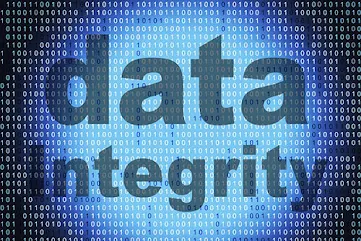It's a giant task to ensure that all your computer systems comply with data integrity regulations and guidelines. There are also costs involved. Conducting gap analysis, writing procedures, developing action plans, training staff, and changing IT systems require time, money, and resources. Even if a worst-case scenario occurs in which you need to get rid of the old and replace it with new IT systems.
This challenge is rooted in the rise of industry-wide data manipulation and violations of good manufacturing practices (cGMP) regulations. Take the following steps to ensure your data integrity. Identifying gaps and correcting them before problems arise is possible after following a realistic assessment approach.
Data integrity has as its primary purpose to protect patients. To ensure a product's safety, efficacy, and quality, regulators and the pharmaceutical industry need accurate, reliable data. It is therefore crucial that electronic and other data be kept free of changes, duplications, deletions and falsification. Another objective is to create a trusting relationship between industry and regulators. In addition to WHO, the FDA, EMA, MHRA and the US Food and Drug Administration (FDA) are some of these agencies.
Directly responsible individuals should be taught more about data integrity. This includes:
This challenge is rooted in the rise of industry-wide data manipulation and violations of good manufacturing practices (cGMP) regulations. Take the following steps to ensure your data integrity. Identifying gaps and correcting them before problems arise is possible after following a realistic assessment approach.
Data integrity has as its primary purpose to protect patients. To ensure a product's safety, efficacy, and quality, regulators and the pharmaceutical industry need accurate, reliable data. It is therefore crucial that electronic and other data be kept free of changes, duplications, deletions and falsification. Another objective is to create a trusting relationship between industry and regulators. In addition to WHO, the FDA, EMA, MHRA and the US Food and Drug Administration (FDA) are some of these agencies.
- Regulation agencies cannot constantly audit and inspect all behaviors, procedures, and technical aspects of each pharmaceutical company's production processes.
- Firms can prove compliance with regulators' guidelines and expectations only if they have integrity in their data.
- To demonstrate their consistency and scalability, drug companies must be able to provide accurate, complete, and consistent records throughout the lifecycle of their products.
- The pharmaceutical industry faces several dangers if it cannot demonstrate this: facility closure, product recalls, import and/or distribution bans, delays or blocked drug approvals, reputation damage, and more.
- Also, their regulator may be less likely to trust them in the future, leading to stricter scrutiny and more frequent inspections.
Is There Still a Problem with Data Integrity?
Yes, in a nutshell. Because of this, regulators are keen on preventing accidents resulting in data integrity breaches. Furthermore, it reveals their commitment to rooting out offenders whose pants are on fire as well as those who intentionally misrepresent their records and data. The FDA's global inspectors discovered the following suspicious practices in manufacturing plants and noted them in warning letters:- Failing to provide the data needed to support the results of tests, or destroying the data necessary.
- Continual testing or sampling for a specific result or for overcoming an unfavorable result.
- Insufficient security measures to ensure only authorized parties are able to access technical systems.
- Making back-dated entries to records.
- Taking away audit trails.
- Modifying the settings of testing equipment in order to reduce data that could produce out-of-specification results.
- Approvals and authorizations are signed by people who are no longer employed by the company.
Maintaining Data Integrity Can be Challenging
Data integrity cannot be achieved and maintained without focusing on the human element first. If you expect your money to be stolen, or at least not on purpose, you probably expect that the people working there won't. Maintaining data integrity is similarly important for pharma companies. Manipulating data purposefully is simply wrong. Invest in training and awareness for employees when this happens, which is the responsibility of the management. Employees of all levels should take data integrity seriously. The authority assigned to their job roles should also inform them of the influence they have over data.Directly responsible individuals should be taught more about data integrity. This includes:
- System owners
- Quality assurance and quality control personnel
- IT and engineering personnel
- Process and data owners
- Validation and compliance specialists
- Supplier of systems and services
- System maintainers, developers, and users
- Clinical, manufacturing, and laboratory professionals
- The commitment is all-encompassing and long-term. From measurement systems to analytics, technology plays a vital role in the pharmaceutical development and manufacturing process. As a result, data mountains are created.
- To ensure data integrity, you must validate your computer systems and business processes.
- Managing access rights and critical authorizations is critical to protecting data and preventing integrity breaches.
- A regular review of each system's audit trail is necessary, in order to establish a secure, time-stamped record of data activity as well as an audit trail of the activities of users of each system.
Get documents for Audit preparation in MS-Word FormatView List



No comments:
Post a Comment
Please don't spam. Comments having links would not be published.